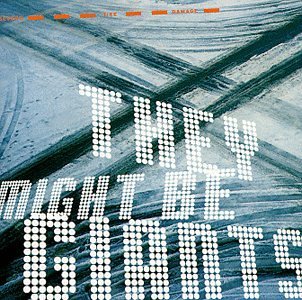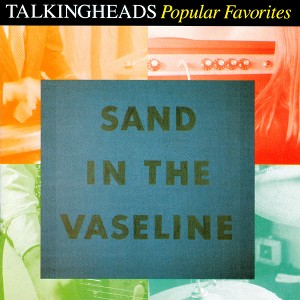:format(jpeg):mode_rgb():quality(90)/discogs-images/R-2118051-1272929738.jpeg.jpg)
In the wake of such one-hit wonders as A Taste Of Honey, Debby Boone, and the Starland Vocal Band, and a year before Christopher Cross, Rickie Lee Jones won the Grammy award for Best New Artist. But as anyone will tell you, an artist puts a lifetime into a first album, and suddenly has to start from scratch for the second. Luckily for her, Warner Bros. was the kind of label that was focused on building catalogs, and was happy to wait until she was ready for her follow-up.
The standard line is that Pirates details the fallout and aftermath of her relationship with Tom Waits, but that insults her as well as the material. Nonetheless, the longing expressed in “We Belong Together” is very real, from the first majestic chords through the cyclic pattern that seems to transcend tempos and time signatures. Steve Gadd is the drummer, and his performance is absolutely stellar. (We still get chills when she harmonizes so closely with herself on “climb upon the rooftop docks” and every other occasion thereafter.) “Living It Up” sports a positively infectious piano melody as it follows Eddie, Louie, and Zero, whom some have suggested are Waits, Chuck E. and Rickie again, but they could be any lost “wild and only ones” looking for something. The middle section switches gears magnificently, culminating in an almost defiant chant of the title, before returning us to the opening piano motif again. For sheer heartbreak, little beats “Skeletons”, wherein a hopeful young couple are on their way to the hospital to have their first child, only for a case of mistaken identity to shatter their dreams. That makes the transition to the finger-snapping hip jazz of “Woody And Dutch On The Slow Train To Peking” so jarring. While it revives the sound people liked so much on the first album, the character isn’t as convincing.
The slick Boz Scaggs-meets-Steely Dan vibe continues on “Pirates (So Long Lonely Avenue)”, but not for long, as the radio-friendly verse turns to the dreamier, aching transition that belongs to the subtitle. There’s a reference to “rainbow sleeves”, which will become more significant in time. A return to the jaunty theme is temporary, and we fade with the slower theme. The ache continues in the lyrics of the otherwise loping “Lucky Guy”, the melody barely hiding the bold admission of her heartbreak after telling the fellow she loves him “when I knew he didn’t care,” and you hope she really will feel better tomorrow. Following another atmospheric intro, “Traces Of The Western Slopes” opens with a verse sung by cohort Sal Bernardi, who sounds enough like Rickie Lee to confuse. (He’s the one harmonizing on the bridge in “Living It Up”, but back to our story, see.) It’s an incredibly ambitious, often impenetrable piece, with peaks and valleys that rival Joni Mitchell’s late-70s work. “The Returns” wafts in like a ballad from a Broadway musical, her voice impossibly high and fragile over the piano, not exactly a lullaby, but a peaceful closer nonetheless.
Having the lyrics printed once again on the back cover helps, not only to discern what she’s singing but to ponder the poetry. For example, is the Bird mentioned in “We Belong Together” the same as the one in “Skeletons”? Is Zero a willing companion or a hoodwinked victim of Eddie and Louie? What the hell is going on on those western slopes? Pirates is certainly more challenging than the debut, but in many ways it’s more rewarding. One can hear her voice and style developing from track to track, and while it doesn’t quite return to the heights of the first three songs, it’s one of those albums that pulls you in. Once again, the Warner Bros. instincts were correct.
Rickie Lee Jones Pirates (1981)—3½
 For years, They Might Be Giants worked just as hard at presenting a unique live show as they did crafting their songs in the first place. Now between labels, they took the opportunity to compile their first full-length album from various concerts and field recordings of a sort.
For years, They Might Be Giants worked just as hard at presenting a unique live show as they did crafting their songs in the first place. Now between labels, they took the opportunity to compile their first full-length album from various concerts and field recordings of a sort.
:format(jpeg):mode_rgb():quality(90)/discogs-images/R-2118051-1272929738.jpeg.jpg)


